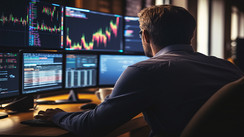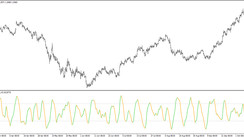When dealing with trading the markets, it is evident that most of them are based on speculation. No one can know how a stock price will vary in the future, and this also applies to Forex trading. It is unpredictable.
Many study the history of ups and downs of company shares or a country’s currency and believe there is a pattern. But still, in the end, a lot comes down to chance although there are certainly ways to ensure the chances are on your side.
Where You Fail: Thinking You’ll Be Right
Forex trading comes from Foreign Exchange, which is the conversion of the currency of a country into another currency. Those who trust investing in Forex believe that it is a safer bet than investing in the stock market.
They work with a sense of security that is not infallible but looks more consistent and trustworthy. Forex trading is as risky as other trades, even if the possibilities seem to be in favor of the traders. It is widespread that many Forex traders use words like “will” and “is” when talking about the market they are trading.
That’s Where Absolute Thinking Comes In
When people use absolute statements like “this will happen” and “the result must be this one,” it creates a sense of security that is hard to resist. These statements come as a result of their guesses about where the Forex market is going to move. They base those guesses on previous actions they have seen in similar situations.
There are Forex traders that also follow blogs of successful investors. They are a lot more open to making their bet when there is an absolute statement in what they read. They forget that trading is a game of chance and that nothing is certain until it happens.
Absolute Thinking Needs Certainty, And Trading Is Never 100% Consistent
Talking about trading market is talking about possibilities. No one can honestly know what is going to happen in the future. Yes, some make reasonable assumptions based on patterns that they have studied carefully.
Those people have good chances to be right, but there are many factors involved that could change the scenario every time. Absolute thinking is an extreme way to see things that is often pernicious to making good trading decisions.
Guidelines Aren’t Rules
There is a big difference between guidelines and rules. Rules are specific instructions on how something has or doesn’t have to go. They are definitive and must be followed to obtain the wanted result.
On the other hand, guidelines show the possible options for a better result. In trading markets, these guidelines are the ones that help to indicate when asset prices will be oversold or overbought. It means prices will probably go up or down, respectively.
However, the guidelines showing that the price is going down and it is safe to sell won’t matter much if, for example, the central bank suddenly makes a surprise decision – changing the game entirely in a few minutes. In such cases, prices can easily reverse no matter what the guidelines, analysis, or rules are saying.
How Can You Beat Absolute Thinking?
The first step will be to acknowledge that you think this way. Recognizing the problem will help you to stop doing it. You must remember that trading the market is not a sure thing. Everything can change in seconds.
It is a game of strategy and witts, but there will always be factors involved that can change the outcome. Have an open mind and don’t take it by heart. Learn to accept the losing trades, and move on to the next one.





